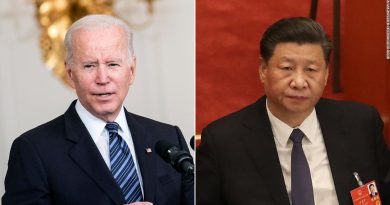2 U.S. Soldiers Killed In Iraq
One of the soldiers was killed Thursday near Husaybah, on the border with Syria, 335 kilometers (210 miles) west of Baghdad, the U.S. military was quoted by Agence France-Presse (AFP) as saying in a statement.
"One U.S. soldier from 1st Squadron Armored Cavalry Regiment, attached to the 82nd Airborne Division, was killed when a military truck struck a landmine while traveling along a border road near the Husaybah border crossing point," a statement said.
The other soldier died and two more were wounded Wednesday, November 5, evening "when their patrol was ambushed by rocket-propelled grenades and small arms fire near the city of Mahmudiyah at approximately 8:00 pm (1700 GMT) November 5," read another statement.
The deaths raise to 142 the number of U.S. troops killed in combat since May 1, when Washington declared major hostilities had ended. During the six-week offensive on Iraq before that date, 114 Americans died from hostile fire.
Also, an Iraqi interpreter working for U.S. forces was wounded Thursday when assailants fired at a checkpoint manned by U.S. soldiers and Iraqi police in northern Iraq, police said.
The U.S. forces did not immediately confirm the incident, but Captain Arkan Hamed al-Obeidi, who heads a nearby police station, confirmed that Sami Ahmed, a 30-year-old interpreter, was wounded around when six Katyusha rockets were fired at the joint checkpoint.
A Polish officer was also injured during an attack on a military convoy 40 kilometers (25 miles) north of Karbala, the first casualty suffered by Warsaw’s troops in the country, a Polish Defense Ministry spokesman said.
Rough Winter
This comes as Britain’s special representative in Iraq Jeremy Greenstock warned occupation forces face a "rough winter on the security front" following a recent surge of violence here.
" ‘Terrorists’ are trying to make Iraq ungovernable and choosing their targets cleverly. They want to try and close Baghdad down," Greenstock said in an interview with The Times newspaper.
Greenstock said the U.S.-led forces had to "earn time" from an increasingly skeptical local population and "Iraqicise" the security operation as quickly as possible to make Iraqis the "acceptable face of security".
Many ordinary Iraqis are seething with anger and frustrations over the continued occupation of their oil-rich country and the U.S. military provocations, including detentions, incursions and unjustified killings.
"I believe it’s do-able but I believe we’re in for a rough winter on the security front," said Greenstock, saying, however, that multinational troops could be in the country "for some time".



